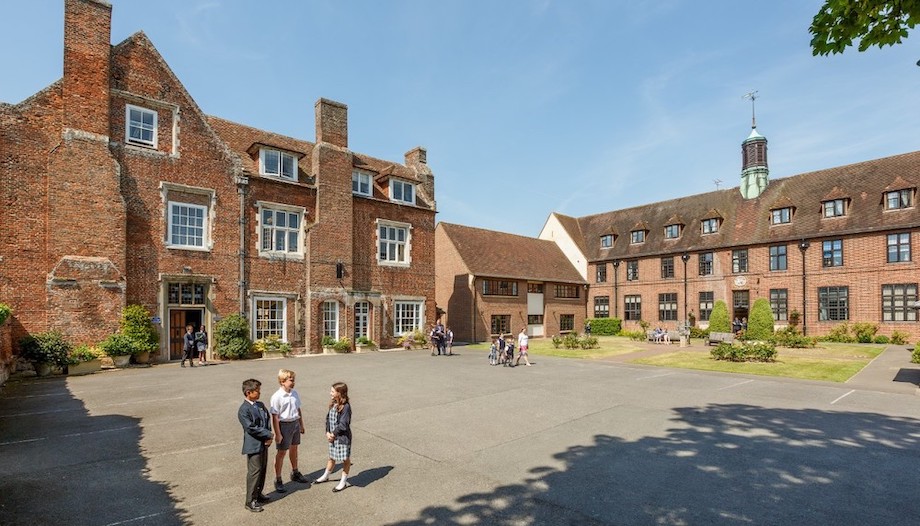Family mediation: everything you need to know – and how it can help you move forward
This month marks Family Mediation Week so we asked Thomson Snell & Passmore, one of the leading law firms in the South East, to explain how mediation can help separating families take control, make decisions together and build a positive future.

Q: What is mediation?
A: Mon 16 – Fri 20 Jan is Family Mediation Week in the UK. Mediation is a process that gives a couple the opportunity to openly discuss issues arising from their separation with the help of a trained mediator. The mediator will assist them to hopefully reach an agreement.
Family mediators are trained to act impartially and do not seek to apportion blame. Mediation is not marriage guidance nor couple counselling. It is a forum to try and resolve important issues such as future finances and arrangements for children.
The mediation process involves a couple working with normally one mediator (but in some cases two mediators/co-mediators,) who encourages them to come to a solution that works for them both and their children (if applicable).
The mediator is impartial, but can give the couple information as to the law and, for example, how in his or her experience the court might deal with a particular issue.

Q: How can mediators help?
A: The process can provide real benefits in appropriate cases. It reduces tension and hostility and helps couples make their own informed decisions about their futures.
Plus, it can help to facilitate a smoother and faster divorce by keeping it out of court. At Thomson Snell & Passmore we find it has a high success rate, over 90%, in respect of both children and financial issues.
Mediation is usually far less expensive than going to court, which can easily cost tens of thousands of pounds each. Another advantage of mediation is that when a couple reach a settlement with the assistance of a mediator, they are more likely to abide by its terms. This is because they have invested time in the process and strived to achieve a settlement, taking into account both of their priorities albeit often with both of them making compromises.
By contrast a court order is imposed on them by a judge who may not consider many issues that a mediator would allow participants to explore and express within the mediation process. Mediation also allows parties to think ‘outside the box’ and reach a settlement that a judge may not have ordered, but which works for them both and/or their children.
However, mediation only works if both parties enter into the process in good faith. It is unlikely to be successful therefore if, for example, one party is only attending mediation to delay matters or to try to avoid being ordered to produce full financial disclosure.

Q: How does this work in terms of separation or divorce?
A: The breakdown of a relationship can be a painful and difficult time for all involved. People are often concerned about the emotional and financial cost of protracted negotiations between solicitors and/or court proceedings.
Although there are cases where it may not be appropriate, mediation offers an alternative to court. You can ask the mediator to assist you to resolve any issues that you have. These might be in relation to finances (as a result of separation following a marriage or cohabitation) or the future arrangements for your children.
When it comes to financial proceedings, it can be very difficult to predict the outcome of cases being decided by a judge. This is because they will have quite a wide discretion as to what settlement is appropriate in any given case. As such, potentially thousands of pounds could be spent obtaining an order that no one is happy with.
It is arguably far easier to live with a settlement into which you have had input than one that has been imposed on you. In addition, the mediation process can take into account the priorities of both (e.g. one wanting to keep the house, the other a pension) and consider whether a clean break settlement is the best solution.
While a mediator will want both parties to provide financial disclosure, the couple can decide when, and for what period, this is provided. In contrast, the court process has rules e.g. initially bank statements for a year (which may be more than needed in some cases and not long enough in others).
All discussions and offers (but not financial disclosure) made within the mediation process take place on a ‘without prejudice’ basis, which allows the participants to be frank and honest in their discussions and offers, without fear of the other being able to disclose the proposals or offers to a judge in court, at a later date.
The participants will be encouraged by the mediator to take legal advice from their own solicitors before, during and/or after the process and although the terms of settlement reached within mediationare not binding, they can be formalised into a draft consent order for approval by a judge, which then becomes binding.
If one or both of the participants, for whatever reason, do not feel comfortable being in the same room as each other, for example due to past coercive or controlling behaviour by one party or if one of them is still finding it difficult to come to terms with the end of the relationship, then shuttle mediation can be used. This is a form of mediation where, instead of the couple being in the same room as the mediator, they are in separate rooms and the mediator effectively shuttles in-between rooms.
Shuttle mediation can be used for the whole of the mediation process or just to deal with a particular issue that the parties may feel would be easier to discuss if they are not in the same room.

Q: And what about in relation to children?
A: Some mediators are qualified to see children as part of the mediation process. Having had an initial meeting with the parents, (who both have to agree to the mediator seeing any children) the mediator will then have a meeting with the child(ren) without the parents, although another adult will be present.
After this, the mediator will report back to the parents any points that have been specifically agreed with the child. This then enables the parents to consider the child(ren)’s wishes and feelings when discussing the future arrangements for them.
The mediator will make an effort to ensure that the environment is relaxed, including providing appropriate child friendly refreshments and offering the opportunity for the child or children to doodle or draw a picture (if the meeting is able to take place face-to-face).
It is important to emphasise that the child(ren) is/are not being asked to decide what will happen, but told that their parents want to know what they feel about the current situation and any suggestions they have with regard to arrangements going forward.
The feedback from both children and parents who have been involved in mediations where the children have had direct involvement and the opportunity to discuss issues with the mediator is extremely positive.
Q: What can you expect from your first mediation session?
A: This is a chance to meet the mediator and talk about the process and what you are hoping to achieve. The mediator will also need to decide whether in his or her view mediation is appropriate for the couple and if not recommend alternative dispute resolution options.
Q: How many sessions do I book?
A: Mediation usually involves attending between two and six sessions, which are arranged at times and dates to suit the participants. Mediation sessions typically last between 1 and 2 hours, although they can last longer if the parties wish to continue. Mediation can often be concluded within weeks or a few months, which is in contrast to the court process, which can take a year or more to conclude.
You may also like

















